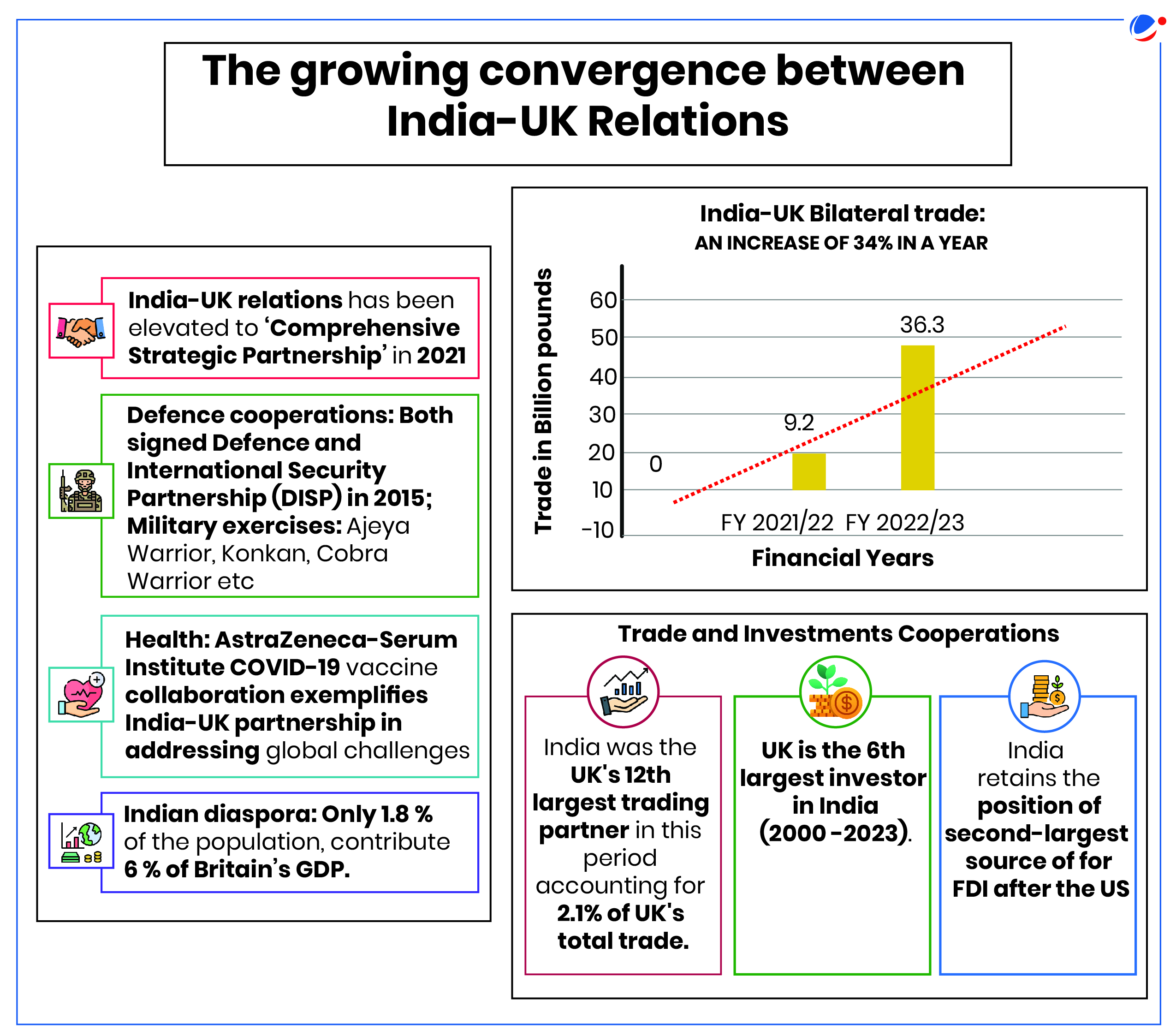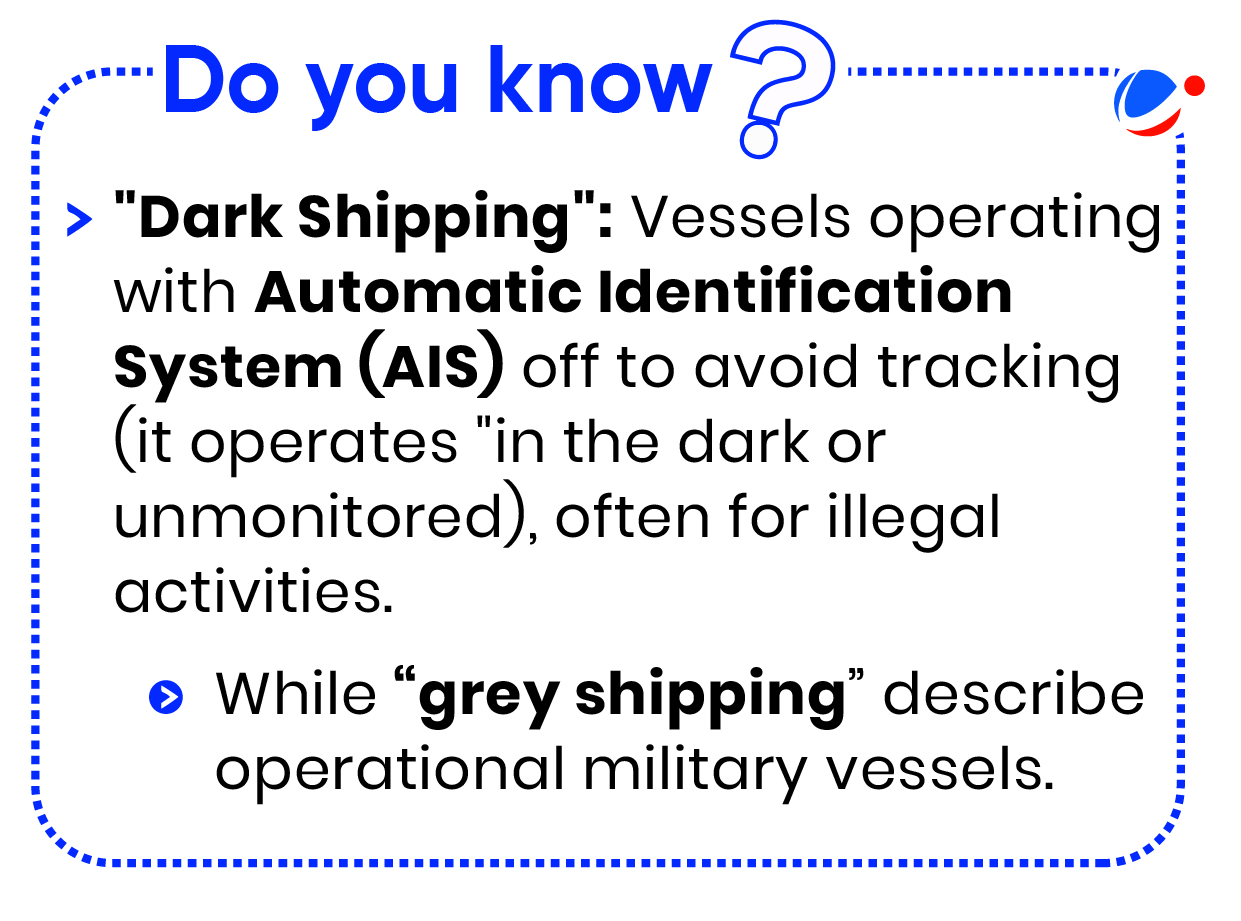Why in the News?
Recently, the Foreign Secretary of the United Kingdom (UK) visited India.
More on the News
- UK-India Technology Security Initiative (TSI) was launched to expand cooperation in critical and emerging technologies.
- These include Telecom, Critical minerals, Semiconductors, Artificial intelligence, Quantum, etc.
- TSI will be coordinated by the National Security Advisors (NSAs) of both countries.

The Growing Significance of India-UK relations
- Deepening of multiple-level ties: Roadmap 2030 for India-UK future relations launched during India-UK Virtual Summit in 2021 with the aim to elevate the India-UK relationship to a Comprehensive Strategic Partnership (CSP).
- Also, UK Supports India's permanent seat bid for United Nations Security Councils and entry to Nuclear Suppliers Group.

- India-UK acting as 'Net Security Provider' across the Indo-Pacific: UK's "Indo-Pacific tilt" aligns with India's interests in the region.
- E.g., Share information on grey and dark shipping and also UK joined Indo-Pacific Oceans initiative (IPOI).
- Indian Ocean Region (IOR) focus: With QUAD countries more focused on the Pacific, Britain has the potential to fill IOR vacuum, where India's strategic interests lie.
- E.g., U.K. has at least seven permanent bases in this region.
- India-UK Defense Synergy: The 2+2 mechanism is accelerating defense cooperation through high-level diplomatic and military dialogues.
- E.g., both countries have signed an Electric Propulsion Capability Partnership aimed at equipping Indian naval vessels with electric propulsion.
- The India-UK economic asymmetry provides an opportunity: E.g., India's larger economy ($4 trillion) contrasts with UK's higher per capita income ($50,000 vs. $3,000).
- India can leverage UK's advanced sectors and expertise, while UK gains access to India's vast market and workforce.
- UK-India trade partnership gains momentum after Brexit: UK prioritizes strong economic ties with India as part of post-Brexit 'Global Britain' strategy.
- India-UK Free Trade Agreement (FTA) negotiations is also a consequence of Brexit. It's estimated, an FTA could double bilateral trade to US$100 billion by 2030.
India-UK Free Trade Agreement (FTA)
The India-UK Free Trade Agreement (FTA) is a negotiated bilateral trade deal which started in 2022 to realign 90% of the existing tariff lines for international trade between the two countries. Potential Benefits of FTA
Major concerns
|
Challenges in India-UK relations
- Colonial Hangover: "Anti-colonial posturing prevents the establishment from seizing the full range of possibilities with Britain." C. Raja Mohan.
- Failure to tackle vandalization of the Indian flag by protesters.
- Recent rioting where immigrants were targeted.
- UK's Hyphenating India-Pakistan goes against India's interests. E.g., raising Kashmir as an issue in UN.
- Absence of specific deadline for concluding negotiations on FTA.
Way forward
- Finalisation of India-UK FTA at the earliest. Particularly, a date can be set for targeted completion of negotiations.
- Promote People-People tie: E.g., Generation UK-India initiative, India-UK Young Professionals Scheme
- U.K. must determine the relative importance of India-UK relations against UK- Pakistan relations and De-hyphenate its relations with both countries.
- Prioritize collaboration in counterterrorism, HADR, and maritime security, especially in the Indo-Pacific region.
- E.g., Particularly in the Red Sea and the Suez, the main India-UK trade lanes.
Conclusion
India and the UK are forging stronger bonds across multiple sectors, leveraging their historical ties and complementary strengths. This partnership promises mutual economic benefits, strategic alignment, and increased global influence for both nations.







